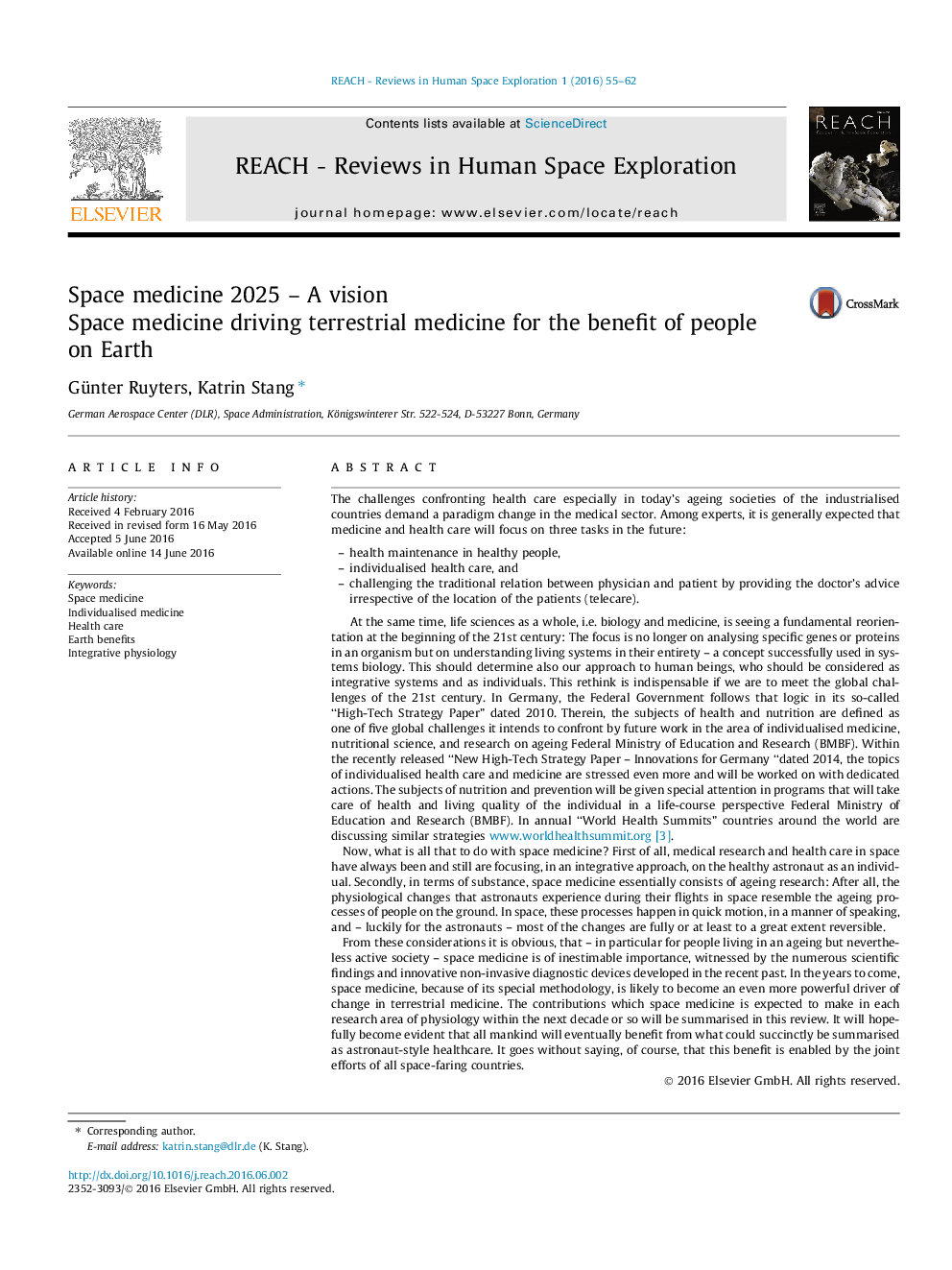| کد مقاله | کد نشریه | سال انتشار | مقاله انگلیسی | نسخه تمام متن |
|---|---|---|---|---|
| 1878452 | 1531898 | 2016 | 8 صفحه PDF | دانلود رایگان |

The challenges confronting health care especially in today’s ageing societies of the industrialised countries demand a paradigm change in the medical sector. Among experts, it is generally expected that medicine and health care will focus on three tasks in the future:–health maintenance in healthy people,–individualised health care, and–challenging the traditional relation between physician and patient by providing the doctor’s advice irrespective of the location of the patients (telecare).At the same time, life sciences as a whole, i.e. biology and medicine, is seeing a fundamental reorientation at the beginning of the 21st century: The focus is no longer on analysing specific genes or proteins in an organism but on understanding living systems in their entirety – a concept successfully used in systems biology. This should determine also our approach to human beings, who should be considered as integrative systems and as individuals. This rethink is indispensable if we are to meet the global challenges of the 21st century. In Germany, the Federal Government follows that logic in its so-called “High-Tech Strategy Paper” dated 2010. Therein, the subjects of health and nutrition are defined as one of five global challenges it intends to confront by future work in the area of individualised medicine, nutritional science, and research on ageing Federal Ministry of Education and Research (BMBF). Within the recently released “New High-Tech Strategy Paper – Innovations for Germany “dated 2014, the topics of individualised health care and medicine are stressed even more and will be worked on with dedicated actions. The subjects of nutrition and prevention will be given special attention in programs that will take care of health and living quality of the individual in a life-course perspective Federal Ministry of Education and Research (BMBF). In annual “World Health Summits” countries around the world are discussing similar strategies www.worldhealthsummit.org[3].Now, what is all that to do with space medicine? First of all, medical research and health care in space have always been and still are focusing, in an integrative approach, on the healthy astronaut as an individual. Secondly, in terms of substance, space medicine essentially consists of ageing research: After all, the physiological changes that astronauts experience during their flights in space resemble the ageing processes of people on the ground. In space, these processes happen in quick motion, in a manner of speaking, and – luckily for the astronauts – most of the changes are fully or at least to a great extent reversible.From these considerations it is obvious, that – in particular for people living in an ageing but nevertheless active society – space medicine is of inestimable importance, witnessed by the numerous scientific findings and innovative non-invasive diagnostic devices developed in the recent past. In the years to come, space medicine, because of its special methodology, is likely to become an even more powerful driver of change in terrestrial medicine. The contributions which space medicine is expected to make in each research area of physiology within the next decade or so will be summarised in this review. It will hopefully become evident that all mankind will eventually benefit from what could succinctly be summarised as astronaut-style healthcare. It goes without saying, of course, that this benefit is enabled by the joint efforts of all space-faring countries.
Journal: REACH - Reviews in Human Space Exploration - Volume 1, March 2016, Pages 55–62